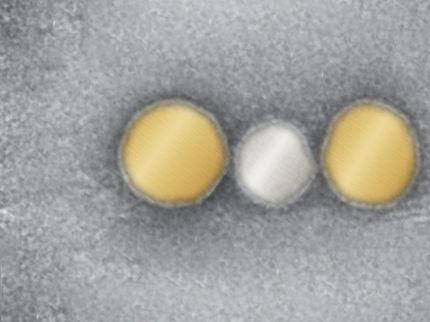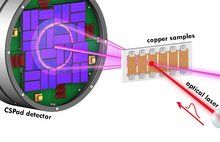Aluminum should yield new technological advances
Advertisement
Researchers at Oregon State University and the University of Oregon announced a scientific advance that has eluded researchers for more than 100 years – a platform to fully study and understand the aqueous chemistry of aluminum, one of the world's most important metals.
The findings, reported in Proceedings of the National Academy of Sciences, should open the door to significant advances in electronics and many other fields, ranging from manufacturing to construction, agriculture and drinking water treatment.
Aluminum, in solution with water, affects the biosphere, hydrosphere, geosphere and anthrosphere, the scientists said in their report. It may be second only to iron in its importance to human civilization. But for a century or more, and despite the multitude of products based on it, there has been no effective way to explore the enormous variety and complexity of compounds that aluminum forms in water.
Now there is.
"This integrated platform to study aqueous aluminum is a major scientific advance," said Douglas Keszler, a distinguished professor of chemistry in the OSU College of Science, and director of the Center for Sustainable Materials Chemistry.
"Research that can be done with the new platform should have important technological implications," Keszler said. "Now we can understand aqueous aluminum clusters, see what's there, how the atomic structure is arranged."
Chong Fang, an assistant professor of chemistry in the OSU College of Science, called the platform "a powerful new toolset." It's a way to synthesize aqueous aluminum clusters in a controlled way; analyze them with new laser techniques; and use computational chemistry to interpret the results. It's simple and easy to use, and may be expanded to do research on other metal atoms.
"A diverse team of scientists came together to solve an important problem and open new research opportunities," said Paul Cheong, also an OSU assistant professor of chemistry.
The fundamental importance of aluminum to life and modern civilization helps explain the importance of the advance, researchers say. It's the most abundant metal in the Earth's crust, but almost never is found in its natural state. The deposition and migration of aluminum as a mineral ore is controlled by its aqueous chemistry. It's found in all drinking water and used worldwide for water treatment. Aqueous aluminum plays significant roles in soil chemistry and plant growth.
Aluminum is ubiquitous in cooking, eating utensils, food packaging, construction, and the automotive and aircraft industries. It's almost 100 percent recyclable, but in commercial use is a fairly modern metal. Before electrolytic processes were developed in the late 1800s to produce it inexpensively, it was once as costly as silver.
Now, aluminum is increasingly important in electronics, particularly as a "green" component that's cheap, widely available and environmentally benign.
Besides developing the new platform, this study also discovered one behavior for aluminum in water that had not been previously observed. This is a "flat cluster" of one form of aluminum oxide that's relevant to large scale productions of thin films and nanoparticles, and may find applications in transistors, solar energy cells, corrosion protection, catalytic converters and other uses.
Ultimately, researchers say they expect new technologies, "green" products, lowered equipment costs, and aluminum applications that work better, cost less and have high performance.
























































